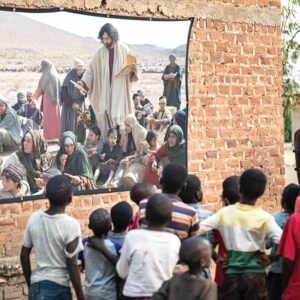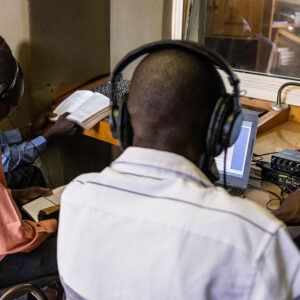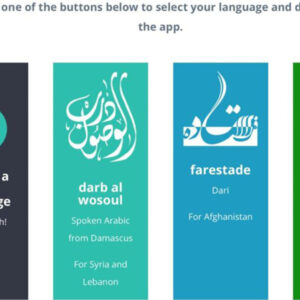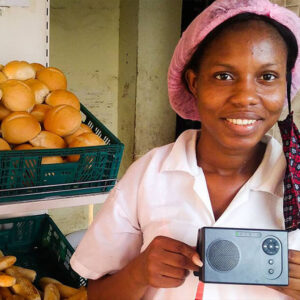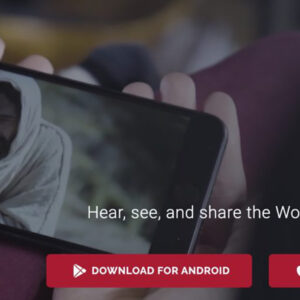 In Senegal, Muslim-majority country in West Africa, MTW missionary Jim* has partnered with a local Senegalese pastor to train four budding Christian leaders to be pastors and church planters—a ministry called The Timothy House. It’s an intense program. Over just two years these “Timothys” will prepare for ordination and then be sent out to plant churches in strategically targeted areas across the country. One aims to minister to the Wolof people, an unreached people group in which there are currently fewer than 100 believers out of 8 million. One will plant a church in the downtown of one of Senegal’s larger cities, another will work just outside the city, and the fourth will likely be a campus minister and help coordinate theological education.
In Senegal, Muslim-majority country in West Africa, MTW missionary Jim* has partnered with a local Senegalese pastor to train four budding Christian leaders to be pastors and church planters—a ministry called The Timothy House. It’s an intense program. Over just two years these “Timothys” will prepare for ordination and then be sent out to plant churches in strategically targeted areas across the country. One aims to minister to the Wolof people, an unreached people group in which there are currently fewer than 100 believers out of 8 million. One will plant a church in the downtown of one of Senegal’s larger cities, another will work just outside the city, and the fourth will likely be a campus minister and help coordinate theological education.
It’s exciting work, and things were progressing nicely. But when the COVID-19 pandemic hit West Africa, everything changed. The government ordered curfews and restrictions on meeting in person.
“There were so many challenges,” Jim said. “It was so discouraging to slow down. … We had done all this work to get ready, and we thought it would all come to a grinding halt.”
Their ministry had been built around a church plant in which each of the four pastors-in-training would preach in turn. Unable to meet face to face, Jim was concerned about what would happen to the community of believers. But God had bigger plans, ultimately using the pandemic to create new opportunities for the Presbyterian Church of Senegal.
1. Opportunities for pastoral preparation
In the weeks before the pandemic, in the space where the church plant meets, the concrete ceiling began to crack and break. One Saturday night, a huge piece of concrete fell from the ceiling right on the place where Jim and his family usually sit during church services. If the accident had happened just 12 hours later, Jim and his family would have been seriously injured.
Once they realized that the structure was unsafe, Jim and the Timothy House team decided that they needed to find another place for the church to meet—and finding a landlord willing or desperate enough to rent to a church is a tall order in Muslim-majority Senegal. It takes time.
“We were wrestling with not being able to meet in this space,” said Jim. “But then the pandemic happened anyway.”
Instead of meeting as a whole group, COVID-19 restrictions forced the church to divide into six smaller cell groups, meeting in homes throughout the community. Unexpectedly, the men being trained for ministry suddenly had an immediate opportunity to preach every week, to begin to lead a congregation, and to learn how to care for smaller groups of people and shepherd them through a pandemic.
“The pandemic has been one of the greatest tools of pastoral preparation I can think of,” Jim said. “It has required these men to think outside the box, to think differently and engage people’s deep needs, insecurities, health problems, and fears.
2. Reaching new ears over YouTube
With the pandemic raging, even with the six small groups meeting, not everyone in the community was able to come to church meetings in person. During this time, the Timothys started to think, “What can we do for them?”
To meet this need, the four budding Christian leaders started a YouTube channel. Every week, one of them would record their sermon—preaching through the book of Genesis—then upload it to YouTube and try and spread the word. The strategy worked.
Now, not only do the people who can’t come to the small groups watch, but as many as 1,000 people who had no previous exposure to Reformed theology have learned about the sermons and are tuning in on Sundays or sometime throughout the week. Other local Christians are hearing the quality of these students’ preaching, and now want to come and be a part of the Timothy House ministry.
“God has opened doors for the gospel to be preached over the internet!” Jim said. “If the pandemic had not happened, we probably would not be thinking at all about using this tool.
3. Christian books and public television … in a Muslim country!
The slowdown caused by the pandemic also allowed the Timothys to have more time to reflect, read, and write about theology and the Bible. One of them wrote and published two books—including a book of Christian poetry that focuses on repentance and other themes related to the Christian life available for people to buy on Amazon. Jim and his wife also created a resource to help people think through the stressors of the pandemic in a biblical way.
Not only that, after another small group of believers started a local TV program, they invited Jim’s Senegalese colleague at the Timothy House to come on the air and talk about what Christianity had to say about the pandemic. In a country that is 95% Muslim, a local Reformed Christian pastor shared the gospel on public television—telling viewers how God promises to meet His people in their need; how Jesus promises hope in hard times.
“It was an amazing day,” said Jim.
4. The church has grown.
It seems counterintuitive that a church would grow in the middle of a pandemic, but it has! As the gospel has reached people through all the ways listed above, the Presbyterian church plant in Senegal has grown and people are coming to new faith in Christ. This is true not only in Senegal, but across West Africa.
In addition, perhaps because the pandemic has given the four pastors-in-training more time at home, two “pandemic babies” have been born, and now another is on the way!
“We now have young families in the Timothy House!” said Jim. “One of the children that was born was actually named after me. They call him: ‘Little Jim.’ … So now these Timothys get to grow as husbands and fathers. We get to see them raise their children and teach them about the covenant and how God’s promises apply to His children; how God has never let go of His purpose for the family.”
The way Jim sees it, the family implications of the gospel are hugely important for missions in West Africa.
“The way we’re going to reach Africa as a whole is not necessarily through individuals, but as the gospel spread in Acts—through households,” he explained. “We’re bringing the gospel and its promises to the household and seeing God work in marvelous ways to build His kingdom.
5. Mercy ministry leads to gospel opportunity.
As the pandemic settled in, Jim and his Senegalese colleague started to get word from Presbyterian pastors across Senegal that people were going hungry. Lockdowns had forced many businesses to shut down, and without work many were unable to buy food. They needed help.
In response, church leaders requested help from MTW’s Compassion Fund, and were granted $25,000 to help purchase essentials like rice, cooking, oil, and basic hygiene products. These life-saving supplies were sent out on horse carts all over West Africa to help people in need¬, opening doors for local pastors to go into the homes of their Muslim neighbors, pray with people, and in some cases share the hope of the gospel.
“The Lord really worked through MTW’s Compassion Fund to help us supply for the physical needs of both the church and nonbelieving neighbors,” Jim said. “It’s opened real doors for us that our pastors can continue to walk through—building relationships with their neighbors and sharing the gospel.
6. Sound theology for a captive audience
As lockdowns shut down life and work in urban areas, many people throughout West Africa left the cities and returned to their home villages. Local MTW partner pastors working in villages across the region started to make in-person home visits to every single one of these returnees, welcoming with a gift, praying for them, and talking with them about how the pandemic was affecting their lives. For many of these villagers, having grown up in a Muslim-majority context, this was the first time they had ever heard the gospel. Even for those who had been to church, many had only previously been exposed to a heretical prosperity gospel, and this was the first time they were exposed to solid, Biblical theology.
Those who returned to their villages, stranded by the pandemic, were a captive audience for these entrepreneurial pastors. According to reports, hearing the true gospel and experiencing the love of Jesus as demonstrated by His servants in tangible, practical ways has left a profound impression on many.
“This is just a sampling of the many opportunities and blessings that have come out of this very difficult time,” Jim said. “I’m reminded of the book of Acts—the apostles were under tremendous pressure, they were persecuted, meeting all kinds of opposition, and it was in those very moments that the author of the book of Acts tells us that the word of God grew and went into new places. It’s almost as if God does some of His greatest and most precious work during what seem to be the most impossible times.”
« Celebrating Our First Audio Bible in Peru Celebrating Our First Audio Bible in Peru »



